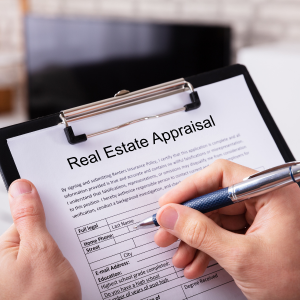
Purchasing or selling a house in Illinois, especially in Chicago, involves several steps, with appraisal and closing being among the most crucial. Looking from the appraisal date to the closing date, one of the most important things you can do is alleviate the stress caused by the appraisal and closing timeline. This post addresses the steps you are likely to take in Chicago, the critical role of appraisal, and the relationship between buyers and sellers, which is helpful. For the Windy City’s buyers and sellers, whether you are working on paperwork for closing or submitting offers, this post is tailored to ensure the best possible transition from appraisal to closing day.
Key Highlights
- Appraisal laws ensure accurate property valuations, crucial for home sellers navigating Chicago’s real estate market.
- Property location and market trends have a significant impact on home appraisals and potential sale prices.
- Post-appraisal closing typically spans 30 to 45 days, depending on the lender’s efficiency and the complexity of the closing.
- Closing disclosure details loan terms and costs, which are crucial for a seamless final transaction for sellers.
- A smooth closing requires careful preparation, including verifying documents and ensuring financial readiness to prevent delays.
Understanding the Appraisal Process in Chicago
In Chicago, and indeed the entire United States, reasonably competitive and successful closing of a sale hinges on the appropriate appraisal of real estate in the vicinity. An appraisal provides a professional, unbiased assessment of the property’s value in the current market. It guarantees the buyer and lender that the selling price of the property is in line with the prevailing market value. Due to the importance of assessing property value in the loan approval process, almost all lenders require an appraised value of the real estate being sold, especially when the buyer is using a mortgage.
Understanding Chicago’s appraisal laws is equally important for sellers, as these laws aim to regulate and increase the honesty and precision of value appraisals. Given the state and federal requirements that bind appraisers, every assessment must ensure that the claims made in the market value report are unbiased and substantiated with verifiable market evidence. Knowledge of these laws helps sellers handle complex appraisals that tend to come in lower than anticipated.
Furthermore, understanding how appraisals are determined helps sellers take steps to prepare their property for sale. A property owner’s location, condition, improvements, and recent sales in the neighborhood are all influential. Sellers who approach appraisal contingencies positively are less likely to encounter time-consuming delays. Instead, they will be able to advance toward closing confidently.
What Home Sellers Should Know About Appraisal Laws
Home sellers must understand Chicago appraisal laws to achieve smooth and successful transactions. These laws enable sellers and buyers to protect themselves, as every appraisal must accurately represent the property’s market value. For mortgage-based real estate transactions, sellers obtain appraisal reports because these reports determine the amount of money the lender will lend. The appraisal laws and procedures that sellers must follow are federal and state, so sellers must hire certified appraisers to assess the property’s value and remain impartial regarding the property’s value based on its condition, location, and other value-determining market conditions.
Sellers need to understand the Uniform Standards of Professional Appraisal Practice (USPAP), which outlines the ethical behaviors and performance benchmarks established by appraisers. Another vital aspect is appraisal contingency clauses, which allow buyers to renegotiate or walk away from the deal if the appraisal does not meet the purchase price. Sellers must understand this clause to anticipate accommodations and shifts in negotiations.
Prepared sellers can better defend their position by acquiring more knowledge on local market trends and recent home sales, which will, in turn, impact the appraisers. Partnering with seasoned Chicago real estate experts can insightfully validate preparedness and assist in securing necessary documents. Sellers can minimize the unexpected by understanding appraisal provisions and being prepared for a more trouble-free closing.
A Team Real Estate Solutions guides Chicago home sellers through appraisal laws with confidence. We help prepare properties for accurate valuations, interpret reports, and manage contingencies to protect your interests. With local expertise and strict USPAP compliance, we ensure a smooth, successful sale from appraisal to closing.
Key Factors Affecting Your Home’s Appraisal
For sellers seeking to understand and optimally position their property for maximum potential value, it is essential to understand the value-influencing factors as determined by a property appraisal. The several elements that comprise an appraisal report guide assessors in arriving at a value for the property concerned. The property location is often foremost. The neighborhood, school district, and surrounding amenities all influence a property’s desirability and, consequently, its surrounding market value.
Regarding the property’s age and condition, value appraisal equally weighs the potential market value against the surrounding condition, as well as the amount of maintenance and value-added renovations that have been expended over time. Properties evaluated positively and in good condition will more likely achieve a positive market appraisal. Being, and those assessed with more depreciation will presumably net a negative appraisal. These can be positive, inexpensive changes, such as new paint and landscaping, to improve the surrounding external visual aesthetics.
Market trends and comparable sales (“comps”) further influence appraisal outcomes. In Chicago’s dynamic real estate market, shifts in demand and supply can raise or lower appraised values. Appraisers also analyze recent sales of similar homes in the area to determine the fair market value of the property. Sellers can benefit from knowing these local comps and ensuring appraisers have accurate property details. Highlighting unique features—such as energy-efficient upgrades or premium appliances—can further boost value.
Sellers need to understand how buyer financing works in relation to the appraisal process. Before loan approval, lenders require an appraisal to be carried out, so it is vital to ensure that an assessment is completed to facilitate a smooth closing. Sellers who understand these factors and work effectively with their real estate agents will be able to improve their positioning and receive a more positive appraisal.
How Long Does It Take After an Appraisal to Close?

Once home sellers understand the appraisal process in Chicago, one of the most common queries is ‘how long will it take to close?’ The time between an appraisal and closing is primarily attributed to the transaction’s complexity, the mortgage lender’s responsiveness, and the buyer’s financing situation. This stage involves the lender’s review of the appraisal report to confirm that the property’s value is consistent with the purchase price, as the price is a critical factor in loan approval. Inconsistencies and questions will almost certainly take time to resolve.
When the appraisal is approved, the transaction reaches its final underwriting stage, whereby the lender validates the buyer’s financial records, checks that all conditions warranting a clear-to-close are satisfied, and the issuing process begins. Concomitantly, the title company and the real estate agents prepare and coordinate the closing documents and the necessary disclosures. Knowing these steps enables sellers to anticipate the process and positively approach all stakeholders. This, in turn, allows them to perform essential actions, preempting unnecessary setbacks and ensuring efficiency in the lead-up to closing day.
Typical Timeline and What to Expect
Generally, you can expect an appraisal to close within 30 to 45 days; however, this timeframe may vary depending on the specific circumstances of the sale. When the mortgage lender receives the appraisal report, they assess whether the property’s value is equal to the loan amount the client is requesting. This valuation is crucial in determining the likelihood of subsequent events occurring at a particular speed. If the valuation meets the lender’s approval, the lender is willing to proceed with the loan process.
Regarding the loan in the final underwriting stages, the lender balances the various financial documents, property details, and reports. This stage may take several more days and is primarily the underwriter’s request for the lender to locate additional scheduled documents. Working with the underwriter directly and balancing the documents helps minimize this time.
After underwriting, the closing appointment is scheduled. At this point, both parties review and sign the final documents, settle closing costs, and complete the sale. Local real estate customs and scheduling availability can also affect timing. While most closings occur within 45 days, issues such as appraisal-related repairs or changes in buyer financing can cause extensions.
Sellers may want to discuss closing costs—such as attorney’s fees, recording fees, and property taxes—with their agent and lender. Sellers who plan and stay organized can minimize unpleasant surprises and facilitate a smoother transition from appraisal to closing.
How a Mortgage Lender Influences the Closing Process

A lender does much more than respond to the buyer’s loan application; one of their most critical responsibilities is determining the time interval from the appraisal to the closing. The efficiency of the lender’s workflow will determine the value of time. Lenders assess the appraisal, make a decision within a predetermined time interval, and assign a value to each loan. Because the lender is solely responsible for the mortgage reflecting the property’s fair market value, they protect their bottom line.
Lenders drive each transaction into the final stage of underwriting. They have the largest capacity to determine how quickly they process a transaction, but limits are self-imposed. It will take lenders longer to process transactions during high-volume periods. For instance, understanding the lender’s approach and self-imposed limits is critical in avoiding a build-up of work. That is, a transaction with a lender who uses outside resources is likely to take longer than one that uses in-house resources.
Beyond appraisal and underwriting, lenders set closing conditions and coordinate with title companies and attorneys to finalize the deal. Any discrepancies or unresolved issues at this stage may require renegotiation, underscoring the importance of clear communication. Sellers can support this process by staying responsive to lender or buyer document requests and ensuring their agents are ready to assist. Proactive engagement and open communication with the lender from the outset can distinguish between a smooth, timely closing and one fraught with avoidable delays.
Navigating the Closing Disclosure
In the context of potential misunderstandings in the documentation involved in the closing stages of a realtor transaction, the closing disclosure deserves undivided attention from home sellers in Chicago. The document summarizes the closing costs and the loan agreement, describing the financial aspects of the transaction. The closing disclosure establishes a final agreement on the fund exchanges and the corresponding obligation of the seller. A careful review is advisable to ensure conformity to the original deal and avoid last-minute surprises related to discrepancies in the agreed-upon terms.
As a result, professional sellers minimize the need for last-minute considerations regarding their queries, especially those related to amendments to contracts already in progress. Such preemptive behavior is inspired by the level of confidence stemming from their comprehension of the contents of the closing disclosure. This understanding facilitates transaction planning and diminishes the chances of incurred costs and delays. Knowledge of the closing disclosure promotes ease and surprise mitigation during the transaction and closing, preventing closing frustrations. Consequently, the closing disclosure promotes seller ease during the transaction.
Contact us for expert guidance in reviewing your closing disclosure and ensuring a smooth, error-free transaction. Our team helps Chicago home sellers identify discrepancies early and confidently navigate every detail before closing day.
Essential Details Home Sellers Must Understand
The last step in selling a home in Chicago is understanding the closing disclosure. This document outlines the terms of the loan, including the loan amount, interest rate, payment schedule, and payoff schedule. For sellers, the most crucial part is the closing cost explanation, which indicates the amount of cash required at closing. This document is provided at least three days before the closing, which gives time to analyze and see if all the obligations are attainable.
The most important part of the closing disclosure is the explanation of costs. This part of the document is most likely where the seller will have questions about commissions and concessions, since they want to ensure they align with the agreements made. Having a real estate agent or an attorney will reduce the likelihood of a last-minute surprise and ensure all necessary adjustments are completed on time.
The disclosure confirms that the property’s appraisal value aligns with the sale price, while also identifying any discrepancies that may impact the transaction. Sellers’ familiarity with the appraisal process enables them to recognize the influence of geography and market factors on such reports.
This brings us to the final point where there may be no positive counterpart: the need for precision concerning any inaccurate items in the closing disclosure. Sellers ought to eliminate discrepancies by reconciling the documents with all closing contracts. Ensuring that there are no discrepancies will minimize any potential closing issues due to the seller’s diligence.
Potential Delays and How to Avoid Them

Home sellers want to avoid delays to ensure they complete their deals on time. Simply knowing that monitoring activities, from appraisal to closing, helps the sellers prevent closing delays. One common delay is correcting closing disclosure mistakes, including incorrect loan amounts and discrepancies in closing costs. No progress on closing can happen until this is rectified. Checking closing documents helps avoid last-minute delays.
Appraisal issues can also slow the process. Low valuations or repair recommendations may lead to renegotiations or appeals, extending the timeline. Sellers can avoid this by addressing property conditions early and ensuring the home meets market expectations. Partnering with an experienced real estate agent or an investor home buyer in Rockford, Chicago, and surrounding cities in Illinois can help identify potential concerns before the appraisal and streamline the transaction.
Delays may also occur during underwriting when lenders verify financial data after the appraisal has been completed. Gaps or errors in the documentation may cause approval to be delayed. This phase remains on track when communication is unambiguous with the buyer and the buyer’s lender, and all documents are assembled in a structured manner.
Liens on a title could be a problem. Sellers should resolve any title issues before a search to avoid delays near the end of the process. Assured of a clean title, buyers and lenders will move faster to the finish.
Ultimately, preparation and communication are key. By reviewing all documents early and collaborating with professionals, sellers can minimize risks and ensure a smooth, timely closing in the Chicago real estate market.
To ensure a smooth closing process, consider the following strategies to minimize potential delays:
– Begin assembling necessary documents early to avoid last-minute scrambling.
– Maintain clear communication with all parties involved to preempt misunderstandings.
– Schedule appraisals and inspections well in advance to keep timelines on track.
– Be proactive about resolving any title issues to prevent unexpected obstacles.
– Monitor the buyer’s mortgage approval progress to address any underwriting concerns.
– Ensure all funds are ready and available to meet financial requirements.
– Confirm all contract deadlines are met to avoid extensions and delays.
By staying organized and proactive, you can navigate the closing process with ease and efficiency.
Preparing for Your Closing Appointment
Preparing for your closing appointment is essential in a real estate transaction, especially in a market as fast-paced as Chicago’s. This phase results from several weeks or months of effort from negotiations, inspections, and final approval. For unnecessary last-minute issues, comprehending the closing costs, analyzing the settlement statement, and verifying that the paperwork meets state and lender compliance requirements are critical. Time and transaction-impacting costly delays are adequately avoided with adequate preparation.
Completing the final stages section of the process has a closing day checklist for your use. Here, you will see which documents to analyze, which payments to organize, and how to collaborate properly with your agent, lender, and title company. Although complex, keeping a detailed approach will help give you peace of mind and assurance on your closing appointment, facilitating an almost effortless transition in completing the home sale or purchase in Chicago’s highly sought-after real estate marketplace.
Checklist for a Smooth Closing Day
A successful closing day in real estate marks the culmination of careful preparation and coordination among sellers, lenders, and title companies. For Chicago home sellers—and even cash house buyers in Chicago and other cities in Illinois—following a detailed checklist ensures a smooth transition from negotiation to closing while minimizing potential delays. Aligning early with key participants and understanding each process step is crucial for a seamless experience.
Begin by checking all final documents. Examine the appraisal report, ensure the disclosures are correct, and finish the appraisal. As mortgage approval and closing costs are likely influenced by the value the appraisal ascribes, the likely closing costs, if any, will also be influenced. Resolve any discrepancies to avoid last-minute issues.
After confirming the closing funds, which may consist of title fees, recording fees, and homeowners association dues, close to avoid surprises and ensure that the funds are available when the title company requests them.
The client must confirm that all documents are to ensure that no title issues, such as liens, remain. The property title must be clean before the transfer, with no unresolved issues. The final walkthrough must be scheduled at least 24 hours before the closing date. The walkthrough documents the agreed repairs. Unsatisfactory repairs may lead to allegations of bad faith in the sale. The extent of bad faith may cause stalled negotiations or the total abandonment of a sale.
To complete any sale documents, all parties must be in contact with each other. Following up on any appointments and closings must be confirmed. Changes and adjustments must be communicated clearly and swiftly to avoid uncontrollable delays. A closing checklist documents all finalized sale details. The closing documents, which have been made and signed, contain all communications agreed upon and made up to the time of the sale.
| Step | Action Required | Responsible Party | Potential Challenges | Timeline |
|---|---|---|---|---|
| Confirm Closing Date | Coordinate with all parties to confirm the final closing date | Real estate agent | Scheduling conflicts | 2-3 weeks before closing |
| Review Closing Disclosure | Ensure all details in the disclosure are accurate | Homeowner and mortgage lender | Discrepancies in fees or terms | 3 days before closing |
| Complete Necessary Repairs | Finish any agreed-upon repairs from the home inspection | Homeowner | Delays in repair work | 1-2 weeks before closing |
| Secure Closing Documents | Gather all required documents for the closing day | Homeowner and real estate agent | Missing documents | 1 week before closing |
| Arrange Utilities and Final Walkthrough | Transfer utilities and conduct the final walkthrough | Homeowner and real estate agent | Overlaps or gaps in service, last-minute issues | 1-2 days before closing |
This table provides a snapshot of the essential steps and responsibilities in preparing for a real estate closing appointment, ensuring a seamless and efficient process.
Understanding the appraisal timeline is key to a smooth closing process in Chicago, Illinois. With typical closing times ranging from 30 to 45 days post-appraisal, preparation is your ally. Be proactive by gathering necessary documents and maintaining open communication with your lender. Consider consulting with a local real estate expert to guide you through potential market delays. These steps can streamline your journey to closing, ensuring a successful transition into your new home. For more insights and a detailed checklist, download our free guide to home selling success today.
FAQs:
What is the role of an appraisal in Chicago’s real estate process?
The appraisal in Chicago’s real estate process determines a property’s fair market value. This evaluation influences mortgage lending decisions and helps set realistic sale expectations.
How long does it typically take for an appraisal to close in Chicago?
The timeframe from appraisal to closing in Chicago generally spans 30 to 45 days. This period can vary depending on the lender’s efficiency and the complexity of the closing process.
What are some common factors that affect a home appraisal in Chicago?
Factors affecting a home appraisal in Chicago include property location, neighborhood desirability, market trends, and the home’s condition. Improvements and unique features can also impact the assessed value.
What is an appraisal contingency, and how does it affect home sellers?
An appraisal contingency is a protective clause that allows buyers to renegotiate or cancel the sale if the appraisal value is lower than the agreed-upon sale price. Sellers should understand its implications for potential renegotiations.
How can sellers prepare for a smooth closing process?
To ensure a smooth closing, sellers in Chicago should carefully prepare documents, verify all financial obligations, and communicate proactively with lenders and agents. Understanding closing disclosures and anticipating costs is crucial.
Need to sell your house fast? Whether you want to avoid costly repairs or prefer a quick, hassle-free sale, A Team Real Estate Solutions is ready to help. We provide fair cash offers, care for all the details, and make the entire process stress-free and straightforward. Do you have questions, or are you ready to get started? Call us at (708) 608-0420 for a no-obligation cash offer today!

